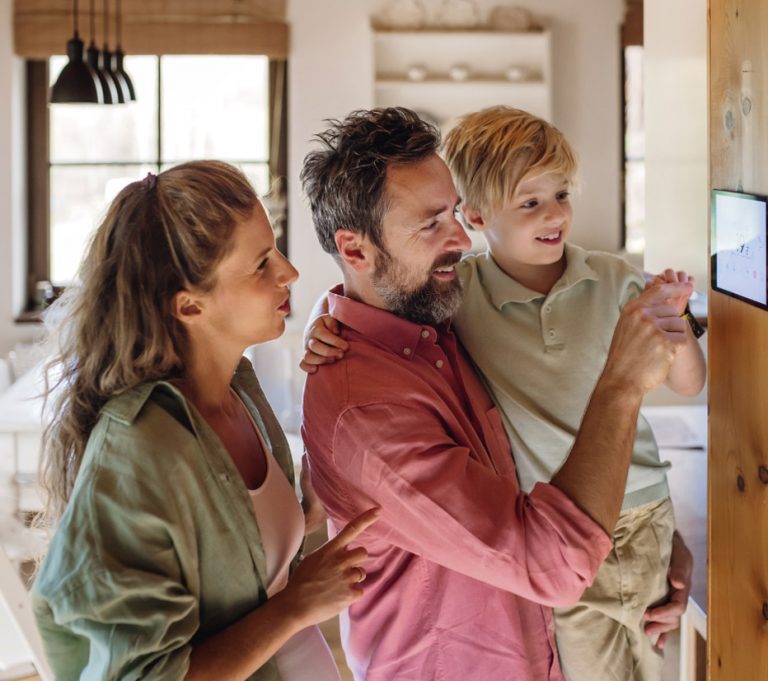When Smart Home Technology Took Care of Carers
Whether you’re a hobbyist, homeowner, or a care manager, smart home technology delivers unmatched convenience, security, and efficiency.
With equitable intelligent bulbs, for example, it is possible to control your living room’s lighting or mood lighting by rolling out an app installed on your smartphone that can even prevent them, turning itself off left and right as soon as it is opened simply through spoken orders. This technology will automate some daily chores and give more time for everything else.
Smart gadgets have become vital for doctors, improving their capacity to provide efficient and reliable treatment. These gadgets, varying from wearable screens to sophisticated analysis devices, supply real-time information, and understandings that enhance professional operations and decision-making.
For instance, wearable gadgets can track personal essentials continually, notifying doctors of abnormalities before they become severe problems.
In addition, smart gadgets assist in far better interaction coupled with synchronisation amongst clinical groups, guaranteeing that all participants are educated and able to react rapidly to client requirements.
By incorporating these modern technologies into everyday regimens, doctors can handle individual treatment better, lower mistakes, and boost general client outcomes.
The recurring innovation of smart technology in health care ensures that it additionally sustains and encourages doctors in their vital duties.

How do smart devices help care personnel monitor patients?
Smart home innovations are used in patient care to increase safety and improve general health. Doctors also get heart rate and blood pressure data from these devices, which monitor health conditions. Any incident can be reported immediately to a family member by a wearable gadget in case of a fall or other abnormalities in the user’s body system. Furthermore, smart homes automate drug reminders for individualised medication management. They also come with voice-activated assistants that help users through their schedules. Smart homes automate drug reminders and foster remote patient monitoring by carers, meaning patients will still receive attention at home while maintaining their freedom.Samples of Smart Home devices:
1. IP Security Camera
A safety and security video camera is an electronic camera that sends video clips online or through a network. Unlike old electronic cameras that use coax, IP video cameras utilize Ethernet or Wi-Fi.
This allows them to access video clips from another location and collaborate with other networked systems for far better safety.
- Voice Assistant
A voice assistant is an electronic device that pays attention to and reacts to spoken commands. It can address concerns, handle your timetable, control clever house gadgets, and offer information -instances include Siri, Alexa, and Google Assistant.
- Smart Medication Dispenser
A smart medication dispenser is an electronic device that aids users in keeping track of their medications. It dispenses medication at set times, beeping to remind users to take their medications while monitoring adherence. Some versions will alert caregivers or healthcare providers if one has missed a dose.
- Video Doorbell
A smart device controls the security, convenience, and home management provided by a video doorbell, such as enhanced security, remote monitoring, package theft deterrence, video evidence collection, improved visitor management, and integration with other smart home devices.
- Smart Thermostat
A smart thermostat is basically a device that’s Wi-Fi enabled to adjust, on its own, the temperature of heating and cooling devices at home. This helps you easily manage temperature settings on your smartphone and guides you in optimizing them based on your needs and behaviors. Some even track your energy use and provide month-to-month reports so you can cut costs—and your environmental footprint. Moreover, they are often integrated with other smart devices in your house for added convenience.
The Benefits of Smart Home Devices in Healthcare:
- Enhanced
Safety
Smart gadgets can monitor health
indicators, recognise falls, and alert carers or emergency responders in case
of any issues.
- Remote
Monitoring
Healthcare professionals can remotely
track patients’ health information, allowing for responses and essential
modification.
- Increased
Independence
Smart home appliances can help people
live better by scheduling tasks and sending timely reminders.
- Improved
Medication Management
Smart medication dispensers are gadgets created to guarantee that medicines are administered at the right times and in the proper dosages. They aid in decreasing the chances of skipping doses by offering prompts and automated distribution.
- Convenience
Voice-activated helpers and smart technologies make daily tasks easier. Enhance the effectiveness of managing routines. They simplify activities. Assist individuals in organizing their daily lives.
- Data
Driven-Insights
Smart devices enable patients to
access in-depth health data, such as vital signs and activity, view trends, and
encourage better self-management.
These are actionable insights that prompt patients to participate in their health and support them in their interactions with healthcare providers.
In short, smart gadgets are changing
the landscape of patient care by improving monitoring capabilities, increasing
accessibility, and supporting treatment. These devices provide data and instant
feedback, enabling healthcare professionals to make decisions.
They assist in monitoring signs,
managing long-term conditions, and offering interventions, thus streamlining
healthcare services.
With the development of technology,
its integration holds the potential to refine treatment approaches further and
broaden healthcare availability. This ongoing progress pledges to enhance care
quality and elevate patients’ overall well-being worldwide. By embracing these
advancements, the healthcare sector is set to deliver tailored and accessible
care options.